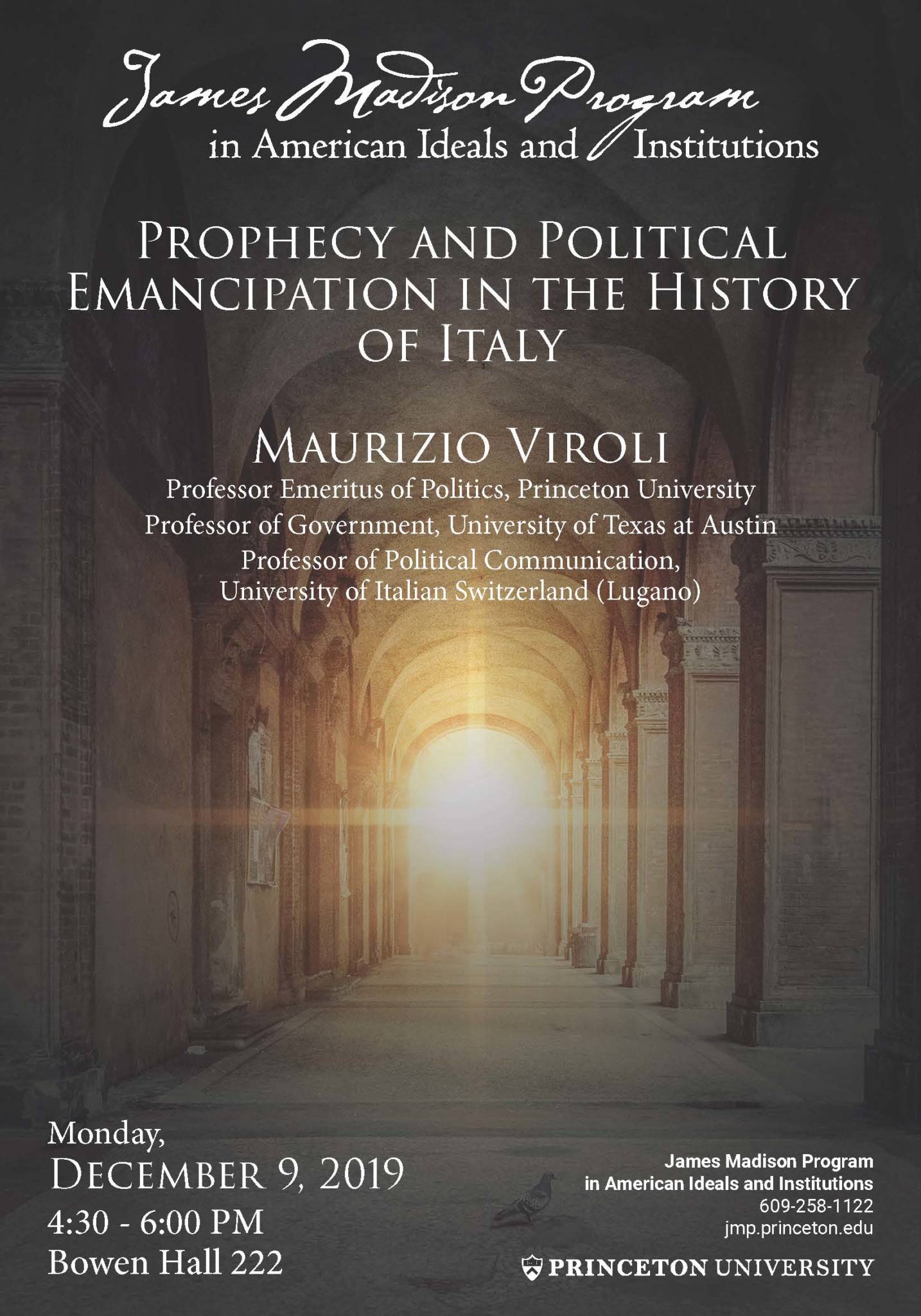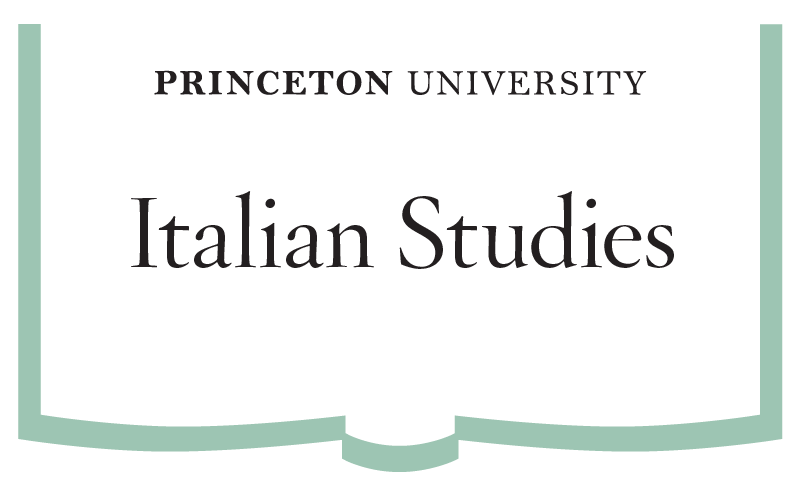
Prophecy and Political Emancipation in the History of Italy
Maurizio Viroli University of Texas-Austin
December 9, 2019 · 4:30 pm · Bowen Hall 222
James Madison Program

At the beginning of the Risorgimento, the Italian Unification, new prophetic voices urged Italians to emancipate themselves from their servile mentality and fight to attain national independence and political liberty. The most prominent of the new prophets was poet Alessandro Manzoni (1785-1873). In the hymn Pentecoste, written from 1812-1815, he evokes the typical prophetic image of a “living God” who operates in the world to inspire and guide a Church that suffers, prays, and fights the oppressors of peoples. The divine word that operates in the world to comfort the grieved is a “signal to the peoples”: it edifies the city on the hill so that it may forcefully announce the coming of new times. To the force of prophetic poetry, Giuseppe Verdi (1813-1901) added, the force of a prophetic music that deeply moved the best souls of Italy to fight for national redemption, especially in Nabucco (premiered 1841). Giuseppe Mazzini, the acknowledged, though controversial, prophet of the Risorgimento, drew from Dante the sense of his prophetic mission, as his essay Dell’amor patrio in Dante (1826), attests. Faithfully believing that the prophet’s duty is to criticize the moral and political corruption of his times and exhort his fellow-citizens to fight and sacrifice themselves for their redemption, Mazzini delivered a radically innovative prophetic message in which national redemption, republican liberty and religious regeneration were inseparable elements of a redemptive vision designed to inaugurate, under God’s guidance and protection, a radically new epoch in the history of humanity.
Maurizio Viroli is Professor Emeritus of Politics at Princeton University, Professor of Political Communication at the University of Italian Switzerland, Lugano, and Professor of Government at the University of Texas, Austin. He served as consultant to the President of the Italian Republic under President Carlo Azeglio Ciampi’s tenure and has been awarded the title of “Ufficiale della Repubblica” for his contribution to Italian culture.
Among his publications are Nazionalisti e patrioti (2019); Etica del servizio e etica del comando (2018); The Quotable Machiavelli (2016); How to Choose a Leader: Machiavelli’s Advice to Citizens (2016); L’autunno della Repubblica (2016); Redeeming The Prince: The Meaning of Machiavelli’s Masterpiece (2013); As If God Existed: Religion and Liberty in the History of Italy (2012); The Liberty of the Servants (2011); Machiavelli’s God (2010); How to Read Machiavelli (2008); The Idea of the Republic (2003, with Norberto Bobbio); Niccolò’s Smile (2000); Republicanism (1999); Machiavelli (1998); For Love of Country: An Essay on Patriotism and Nationalism (1995); From Politics to Reason of State: The Acquisition and Transformation of the Language of Politics, 1250-1600 (1992); and Jean Jacques Rousseau and the “Well-Ordered Society” (1988). Professor Viroli has edited and written the “Introduction” of Machiavelli’s The Prince, translated by Peter Bondanella (2005). With Gisela Bock and Quentin Skinner, he is the editor of Machiavelli and Republicanism (1990).
Professor Viroli has been visiting faculty at the Collège de France, Paris, at the Universities of Peking, Jerusalem, Urbino, Brisbane, Trento, Molise, Ferrara, and Georgetown, and at the Scuola Normale Superiore of Pisa and the New School for Social Research New York. He has also been a visiting speaker at Columbia University and a visiting fellow at London Queen Mary University and the European University Institute.
Professor Viroli holds a degree in Philosophy from the University of Bologna and a Ph.D. in Political and Social Sciences from the European University Institute of Firenze.












